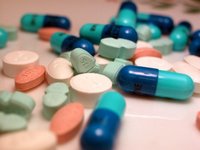 Insulin has been identified as one of the top 10 high risk medicines worldwide. Errors are common - the first national audit in England and Wales showed prescribing errors in 19.5% of cases.
Insulin has been identified as one of the top 10 high risk medicines worldwide. Errors are common - the first national audit in England and Wales showed prescribing errors in 19.5% of cases.Not only are mistakes common, they often lead to harm - 3% of medication errors are related to insulin, but these errors were also twice as likely to cause harm as errors for other prescribed drugs.
Errors relating to insulin arise because insulin has a narrow therapeutic range and requires precise dose adjustments with careful administration and monitoring.
Over 20 different types of insulin are in use, in various strengths and forms, and with a range of delivery devices, including insulin syringes (from vials), insulin pens (prefilled or reusable), or infusion pumps.
References:
Safer administration of insulin: summary of a safety report from the National Patient Safety Agency. BMJ 2010; 341:c5269 doi: 10.1136/bmj.c5269 (Published 13 October 2010).
Image source: Wikipedia, public domain.





